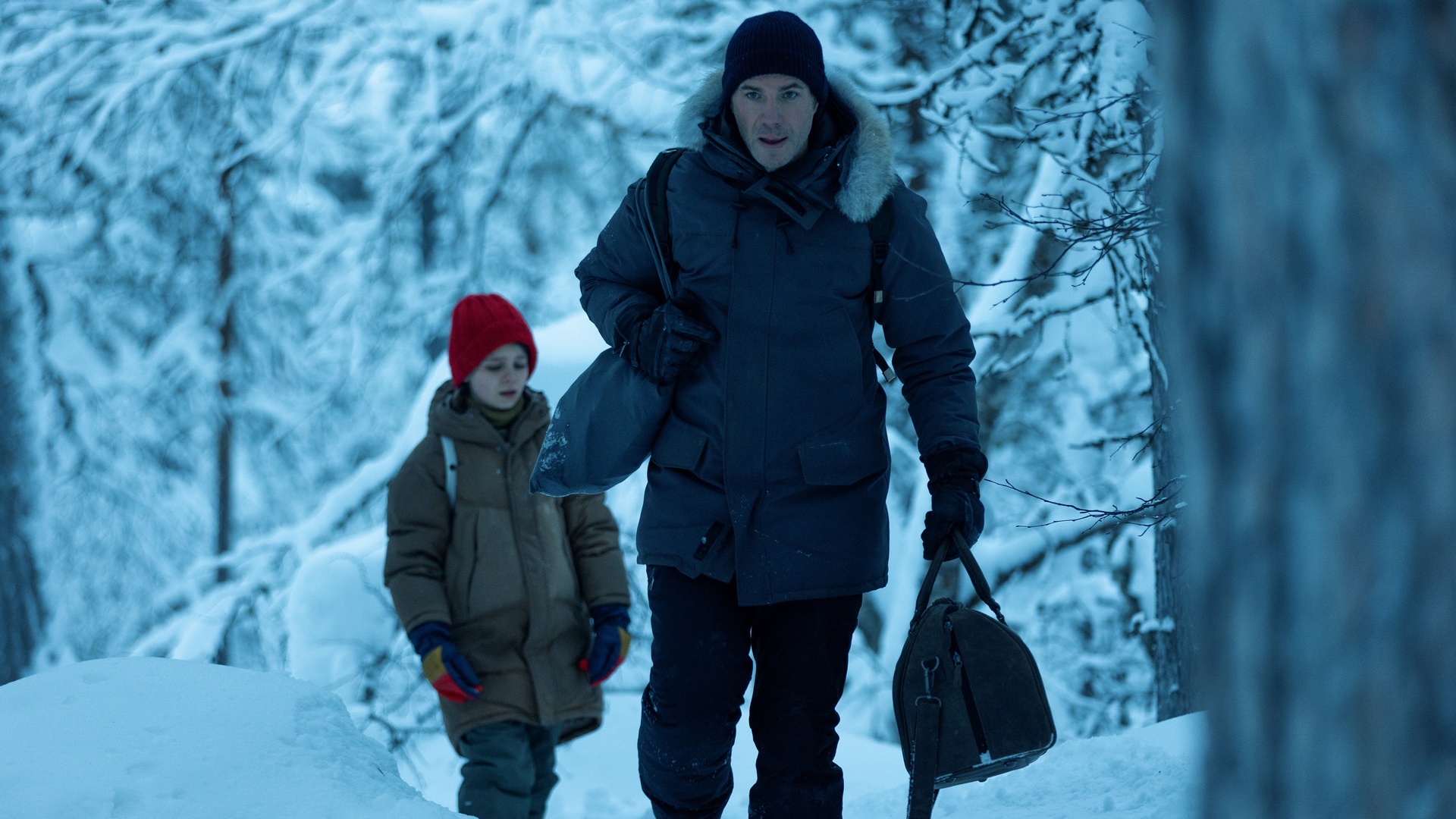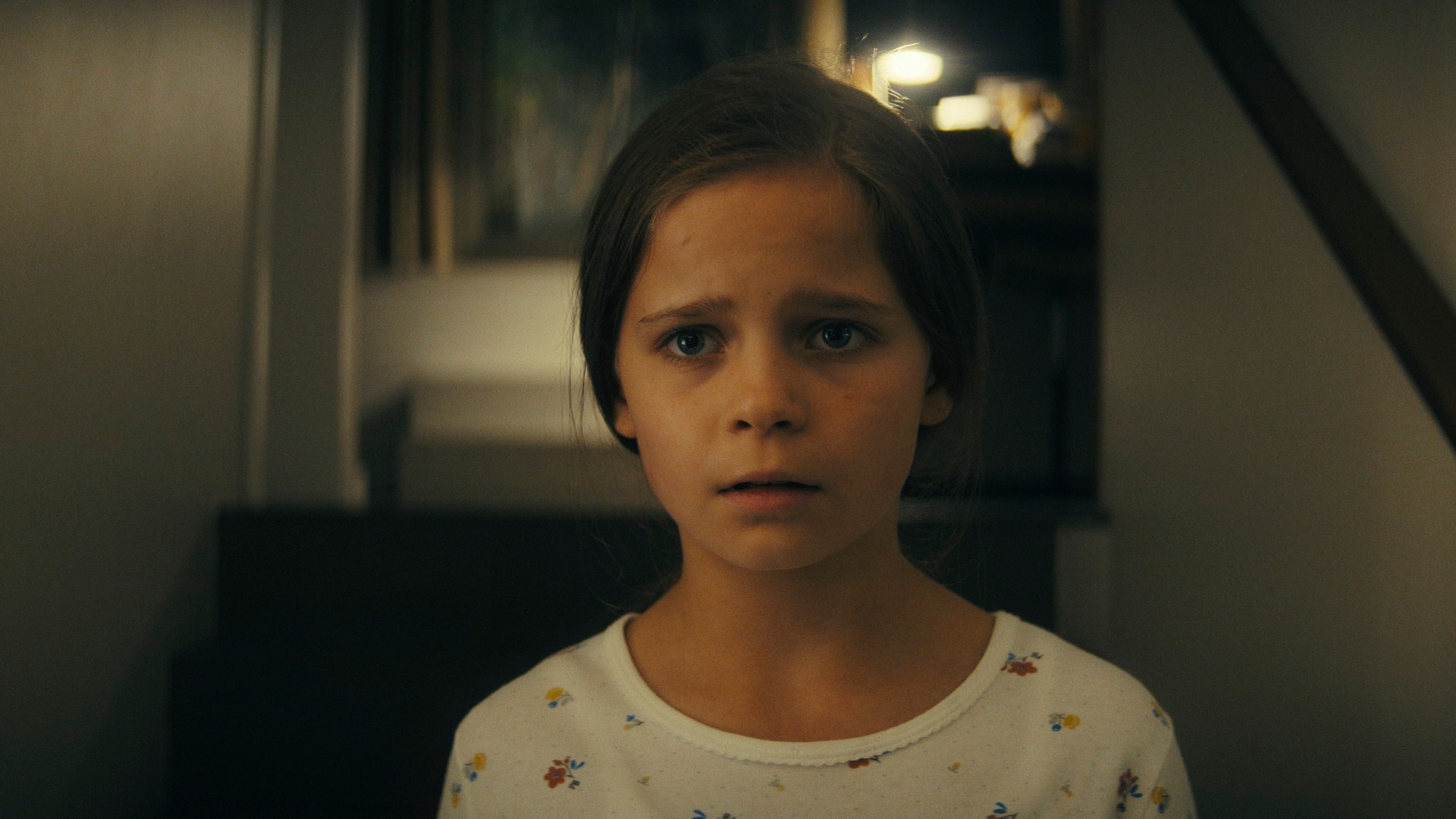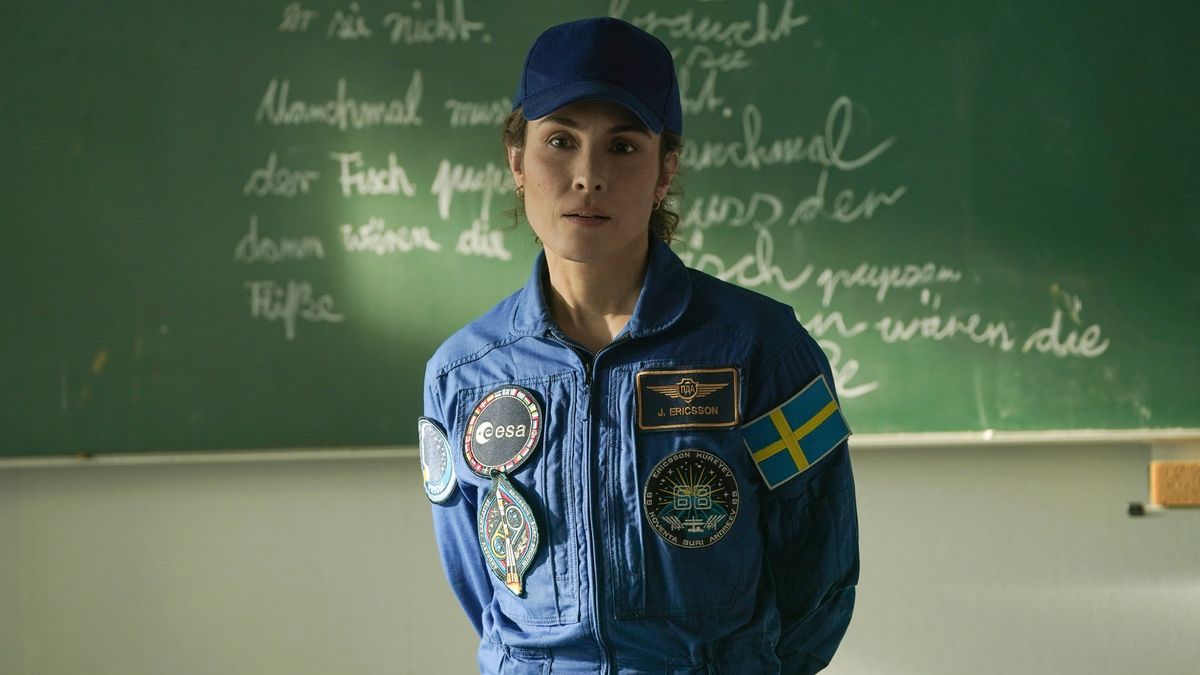The three-episode premiere of “Constellation” was anything but forgettable: the acting on display was great all around, and Apple’s backing can be felt on the screen. However, Peter Harness’ new series also struggled to make a case for an eight-episode season with its first drop because it arguably revealed too many cards too soon. Does this episode alter that sinking feeling? Not really, but the show’s strengths become clearer.
Directed by Oliver Hirschbiegel once again, episode 4 ‘The Left Hand of God’ drops the stress of the opening episodes and uses a slower, more methodical approach to cut into the main characters and their post-accident struggles. Regardless, the sci-fi elements throw a couple of curveballs our way, potentially setting up fun mechanics in future chapters. Again, the moment-to-moment of “Constellation” is quite enjoyable, yet its butter may be scraped over too much bread.
If you can’t get enough of the show, then we think you’ll enjoy our exclusive interview with Noomi Rapace and Jonathan Banks on making Apple TV+’s twisty space thriller, “Constellation.” Or just want more Noomi Rapace in your life? Then check her out in the Alien prequel movie “Prometheus” (2012), arguably one of the best space horror movies out there.
Spoilers ahead for “Constellation” season 1 episode 4: ‘The Left Hand of God’

Last week’s third episode gave Jonathan Banks a lot of good material to chew on, and the actor made sure to deliver. The character he plays, Henry Caldera, might be the most fascinating in the series, as he’s nearly as affected by the accident with the CAL experiment as Jo (Noomi Rapace) is, whilst also dealing with past failures and his own demons. Moreover, his other self (we’re running with the parallel universes narrative for now) is in deep trouble after throwing a conspiracy nutjob off the cruise ship he was on.
This doesn’t mean that Jo is left behind, as ‘The Left Hand of God’ puts her under even more emotional stress as her husband Magnus (James D’Arcy) questions where they’re going as a married couple and a family that once knew peace. Jo is bombarded with many questions she doesn’t know the answer to, mainly because she (or at least her psyche) isn’t in the right world. This was abundantly apparent in the premiere episodes, and things don’t become subtler in episode 4.
At this point, it’s safe to say “Constellation” happens to be more interested in showing what’s going on and how that affects its characters than actually cooking up an intriguing mystery.

Since the lens moves closer to the people in episode 4, the larger narrative structure jumps around less this time. We don’t return to that troubled, snowy Swedish night with Jo and her daughter Alice (Rosie and Davina Coleman), but we do see Alice and her father travelling to the same place, trying to find Jo after she’s ‘gone’ (seemingly for good).
So far, the show seems to be working with only two parallel universes; Jo died in one and survived in the other, and that sent Henry Caldera (as the CAL experiment was likely destroyed) and her family down two very different paths. This makes the whole issue of seeing things which aren’t really there crystal-clear, yet the actual visual presentation of Jo, Henry, and Alice’s ‘hallucinations’ still manages to be fun to watch and often downright creepy.
Of course, the fact Alice is also suffering the CAL-related condition remains the biggest question mark of the series right now. This might be what elevates or breaks the entire story in the coming weeks, despite the uneven writing for the character Alice, who swings too wildly (even in the same universe) between being an innocent child and a receptacle for lines that come across as far too adult for her. Rosie and Davina Coleman’s misguided acting doesn’t help either.
Rapace already impressed us in the opening episodes with her nuanced performance across a number of difficult situations and fluid emotional states, and she keeps shining in the fourth episode. What could’ve been a one-note performance from a lesser actor becomes engaging enough to hold (half) the show together, especially when we’re thrown right in the middle of a marital drama in which both parties are confused.

The writing that concerns Jo and Magnus’ relationship is perhaps the series’ cleanest, as the couple’s clashes come across as equal parts frustrating and believable. A profoundly sincere conversation would probably fix most of their issues, even if this Jo isn’t angry Magnus’ Jo. But the astronaut is far too shaken to properly convey what’s happening to her and how she feels, especially when she doesn’t even trust the psychiatrist from the European Space Agency (ESA).
Jo’s (probably) illegal trip into the lab at night yields the answer that her new pills are identical to what she took after returning from space and what Henry takes daily. This may or may not be important, but Jo taking a more proactive approach to her condition is a good thing for the show’s pacing.
As an extra, we get visual confirmation that her ‘visions’ aren’t flashes, but more like glimpses into the other reality, one in which she’s dead and everyone is moving on. Moreover, she scares a cleaner that was taking care of her alt-universe office with a ghostly appearance, which shows us that limited, albeit brief, interactions between universes are actually possible. Also, Jo can perfectly play the piano through muscle memory, despite her insistence that she never had one, confirming she’s stuck in a reality and body that aren’t her own (as if there were any doubts).
Alt-universe Henry (Bud) is, meanwhile, trying to play it cool when the FBI starts to look into the disappearance of the man he probably killed while on the ship. His own interpersonal relationships aren’t much better than Jo’s, and he isn’t in a good position after what happened with the International Space Station (ISS) and the CAL experiment.
While Henry’s struggles (related to the ‘observer effect’) in the universe where we’re spending most of our time are giving Jonathan Banks more than enough space to flex his acting muscles, Bud’s separate story offered him a great opportunity to tackle something different – this definitely feels closer to his memorable role in “Breaking Bad” and “Better Call Saul.”

The two biggest reveals of episode 4 are bigger doozies which may propel the series in a more interesting direction: Henry and Bud appear to have found a way to contact their other selves (remember that the overall narration isn’t linear either). And, through two tapes recorded by the Skagerrak Marine Observatory, Jo learns that her attempts to communicate with mission control during her descent from the ISS actually reached Earth. Plus, Jo also learned that something similar happened in 1967 with a Soviet cosmonaut that might very well be the corpse she saw up there.
The conclusion sets Jo and Alice’s forced escape in motion, as her boss Frederic’s (Julian Looman) ill-timed home visit regarding the astronaut’s mental health reveals to Magnus that he and Jo (not this one) had an affair, something that is a step further than Magnus’ kiss with Alice’s school teacher. The misinterpreted ‘revelation’ that the ESA and Magnus were going to leave Jo “up there to die” adds to the ensuing discussion. This ends with her pushing Magnus a bit too hard, leading to what looks like a fatal furniture-related accident.
‘The Left Hand of God’ overall feels like a step in the right direction, as it amplifies what works and doesn’t pay much attention to the bits that don’t fully come together. Should the rest of the season double down on what’s going on and how it’s presented, “Constellation” could outlive its core premise’s short battery life. There aren’t many big mysteries to unravel here, but watching it all play out could be more than enough.

